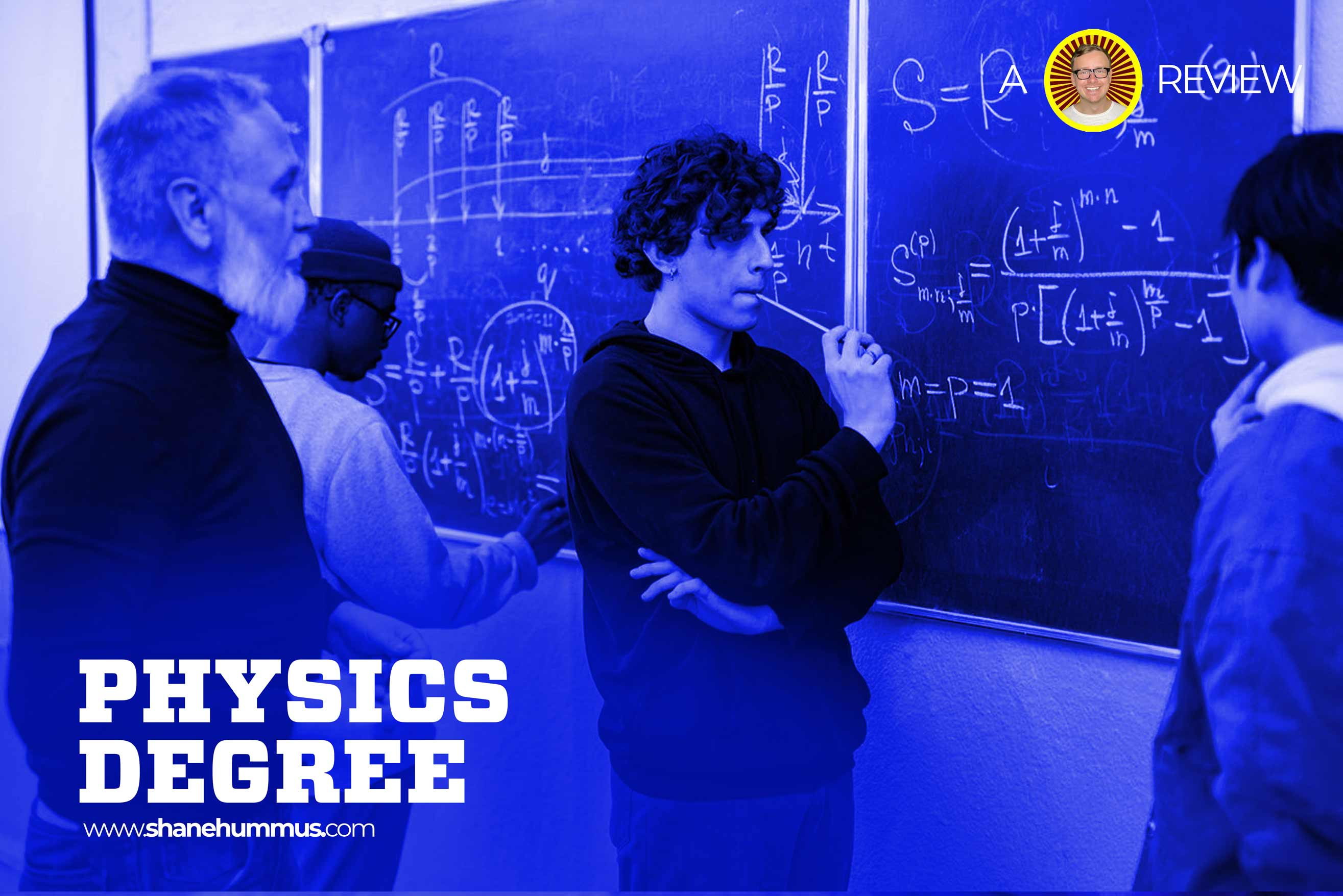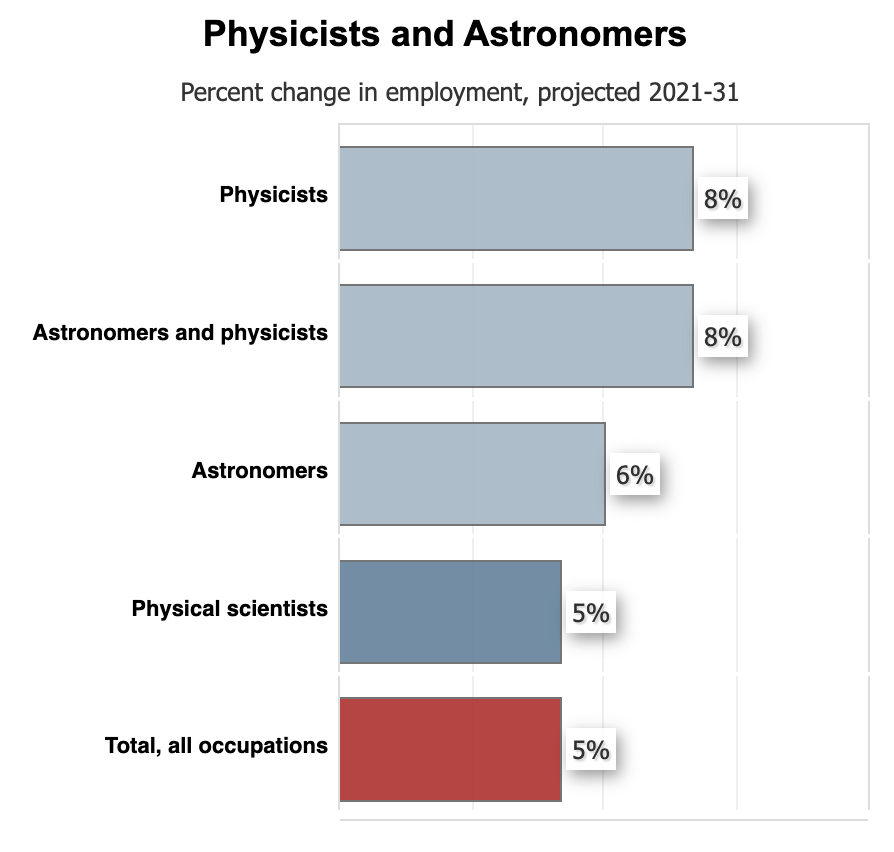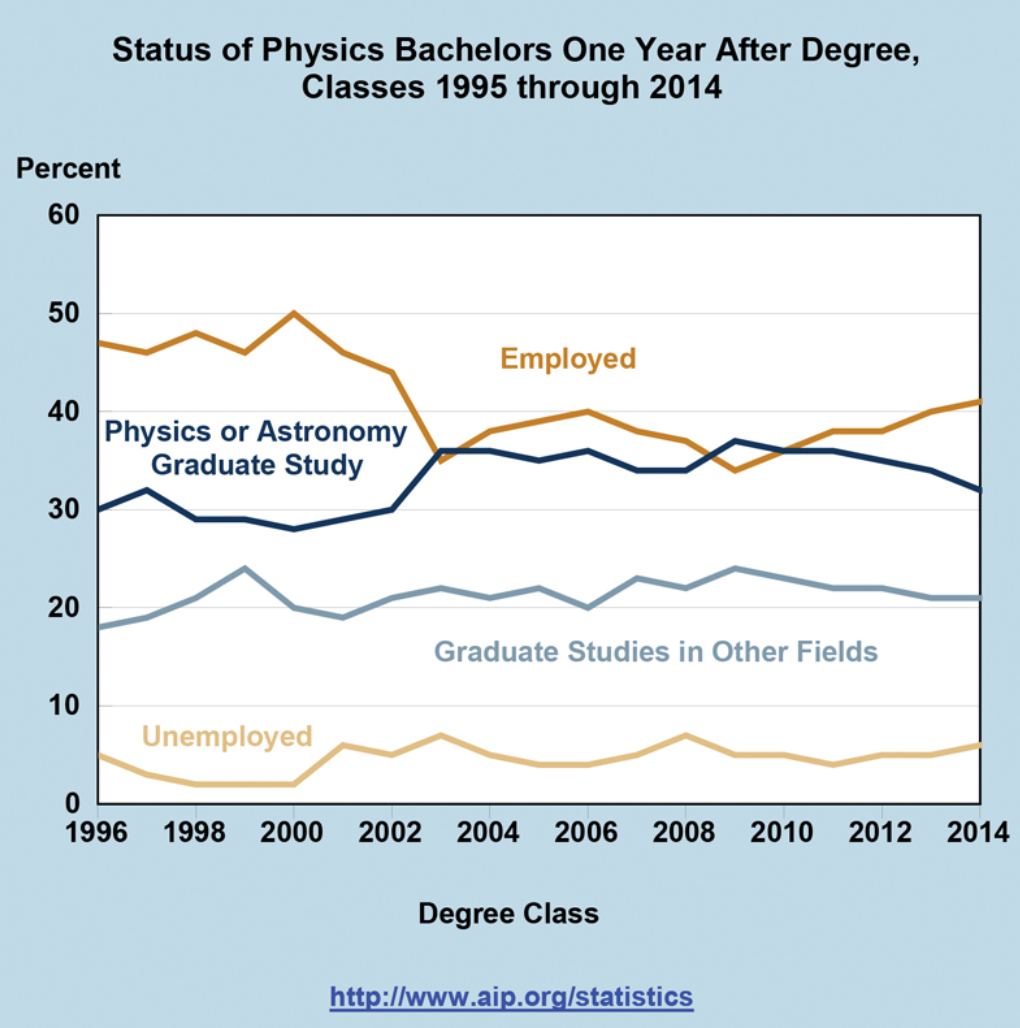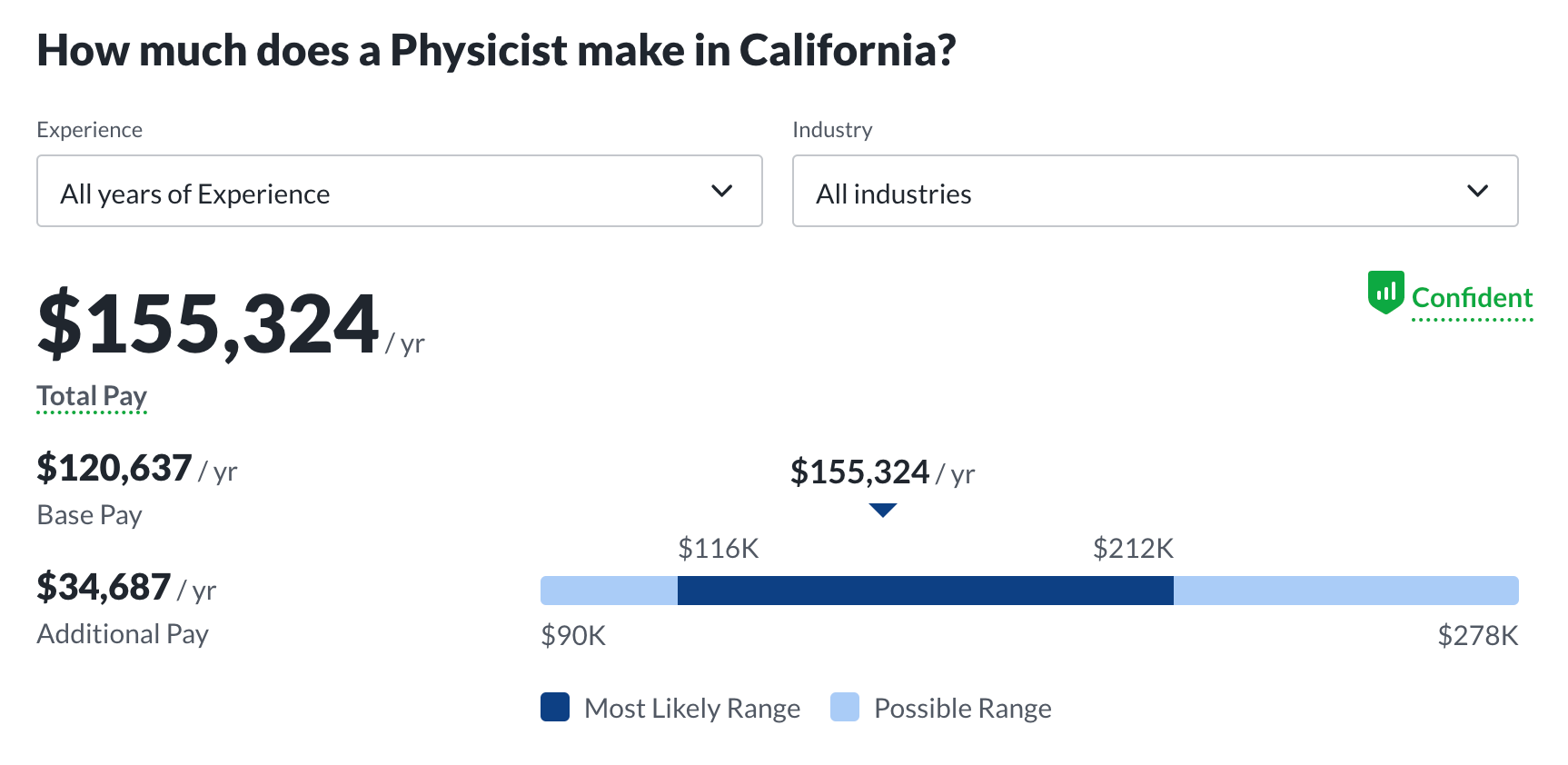Will A Physics Degree Lead to A Good-Paying and Satisfying Career?
If you are looking for a college degree to take very soon, chances are you might have come across the idea of taking a Physics degree. Physics is a very versatile and interesting field of study. It deals with the basic laws of nature, forces, energy, matter and motion. A good understanding of physics fundamentals can open up great opportunities for those students interested and who want to pursue a satisfying career in the sciences.
One advantage of having a Physics degree is that it opens up many doors to excellent career opportunities. A Physics degree can lead to a wide range of professions, including engineering, medicine, aeronautics medical physics and astrophysics. With the right knowledge and skill set, you could even enter research or teaching fields in physics.
In this blog post, I am going to dig deeper into the pros and cons of a Physics degree, career prospects, salary information and real-world scenarios to guide physics students with the necessary tool to their physics careers and guide them whether to take physics major very soon.
What is a Physics Degree?

As one of the best college degrees in my subjective degree ranker, Physics degree is well-sought for higher chance of yielding results in the future. A Physics degree is an undergraduate or graduate degree in which you learn the fundamentals of physics. These condensed matter physics include the laws of matter and energy, motion forces, nuclear physics, modern physics, quantum mechanics and much more.
Once you have a solid understanding of these topics, you can then apply them to various situations and science disciplines such as materials science, engineering or medicine. You’ll also learn a great deal about mathematics and how it relates to the physical world.
How Long Will I Spend To Finish Physics Degree?
The amount of time you spend pursuing your physics degree will depend on the program and the institution. A typical bachelor’s degree in physics takes four years to complete, while Physics graduate programs such as a master’s degree or doctorate can take anywhere from two to five years depending on the school and field of study.
Career Paths and Job Market Demand for Physics Graduates

Generally, the demand for Physics graduates is promising if we base it on official projection from the US Bureau of Labor Statistics. Employment growth for physicists and astronomers is predicted to surpass that of other occupations, with an expected 8 percent increase from 2021 to 2031.

What Jobs Can You Get With a Physics Degree?
The employment outlook for physicists and astronomers displays significant variances based on occupation. The majority of these professionals work in scientific research and development services, as well as in academic institutions like colleges and universities. These are the jobs you can possibly land after finishing this undergraduate degree.
Physicist
This job entails researching and studying the physical universe and its components, such as energy, matter, forces, and motion. They do computational physics and are also responsible for designing experiments and analyzing data to explain theoretical concepts.
Astronomer
Astronomers study the physical characteristics of celestial bodies, stellar evolution, and cosmology. They use telescopes to observe space phenomena and may also study physics to design spacecrafts or satellites that can be used in exploring the outer universe.
High School Physics Teacher
High school physics teachers instruct students on various concepts of physics and mathematics. They are primarily responsible for helping students understand the physical world and its applications in real-life situations. If you end up being one, expect to teach quantum mechanics, particle physics, theoretical physics, quantum physics, thermal physics, and some natural sciences to your students.
Engineer
Engineers use their knowledge of mathematics and physics to design, create, and maintain infrastructure projects such as bridges or buildings. They are also involved in projects that involve motor vehicles, aircraft, spacecrafts and medical equipment.
Aerospace Engineer
Aerospace engineers design and build aircraft, spacecraft, satellites, missiles, and other modern flying vehicles. They are also involved in projects that involve launching and tracking these systems once they are operational.
Mathematician/Data Scientist
Mathematicians and Data Scientists use analytical skills and their knowledge of mathematics, statistics and computer science to process large amounts of data. They are typically employed by companies in the technology or finance sector to make decisions based on the data they provide.

Job Outlook for Physics Graduates

The US BLS projected that the field of physics and astronomy is expected to experience an 8 percent surge in employment levels from 2021 through 2031, surpassing the average for all other occupations. On an annual basis, there will be approximately 2,100 job openings for individuals in this field over the course of the decade.
This demand is chiefly attributed to the need to recruit new staff to fill vacancies left by those who relocate to new industries or transition into retirement. With this data in mind, it is thus safe to say that taking Physics degree for college could potentially land you better-paying jobs without having to wait longer.
I found this interesting research which reported the employment of status of Physics students after graduation:

How Much Is The Salary Range for Physics Graduates?

In May 2021, astronomers and physicists earned median annual wages of $128,160 and $152,430, respectively. The “median wage” serves to illustrate the wage received by half of the workers in a given occupation; thus, half of astronomers earn over $128,160 while the remaining half earns less.
In comparison, the lowest 10 percent of astronomers earn less than $61,910, whereas the lowest 10 percent of physicists earn less than $78,870. Furthermore, the highest 10 percent of astronomers and physicists earn more than an impressive $208,000.
The median annual salaries for physicists across various industries in May 2021 were reported as follows by the BLS:

How about user-reported wages? For that, I turned to Glassdoor for some reliable data. Here’s what I got:

In the California region, the annual total pay for a Physicist is estimated to be $155,324, whilst the average yearly salary stands at $120,637. These figures denote the median, an index that signifies the halfway point of ranges obtained from Glassdoor’s exclusive Total Pay Estimate model, rooted in salaries in their user base. Supplementary payments, amounting to $34,687 per annum, are further envisaged to cover various forms of incentives such as cash bonuses, commissions, gratuities, and profit-sharing,
So is this lucrative enough? I’d say yes, and that makes it a good option for a degree program.
Are Physics Degree Graduates Fulfilled and Satisfied at Work? (Job Satisfaction)

In accordance with empirical data, the results show physicists typically score the significance of their work at an average of 3.4/5. This is based on a survey conducted by Career Explorer.

It should be noted that unlike a plethora of other professions, physicists tend to encounter few impediments finding meaning in their work, hence this likely constitutes one of the principal driving forces behind one’s decision to pursue a career in Physics.
Real-World Examples: How Do Physics Students Fare in the Real World After Finishing Physics Degree?
I turned to Reddit to have a feel of what Physics Students and Physics majors thought about their degree. Here’s what I found:
Make It a Foundation
This Redditor recommended using the foundation of Physics to venture into another jobs, which would be helpful for those industries that need problem-solving skills and critical thinking, two of the characteristics that are innate among Physics graduates.
Another Redditor echoed the thought above, saying gaining practical experience is key to thriving in the real world:
Physics Degree Courses: How They Look Like
Here’s one student sharing about the courses he had to hurdle under this degree:

Are You Ready To Take Physics Degree in College? (Top Things To Consider Before Deciding)
| YES | NO | |
| Interest: Are you genuinely interested in physics?Aptitude: Do you have a natural aptitude for understanding and solving complex scientific problems? | ||
| Problem-Solving: Do you enjoy analyzing and solving complex problems using scientific principles? | ||
| Research Opportunities: Are you interested in pursuing research in physics? | ||
| Mathematical Skills: Do you have a strong foundation in mathematics or the willingness to develop those skills? | ||
| Patience: Are you willing to invest significant time and effort in understanding abstract concepts and theories? | ||
| Curiosity: Are you naturally curious and driven to explore the fundamental workings of the universe? | ||
| Flexibility: Are you open to exploring various subfields within physics and adapting to the evolving nature of scientific research? |
Please note that while these questions can help you reflect on whether pursuing a physics degree is suitable for you, the decision ultimately depends on your personal preferences, goals, and circumstances.

Factors to Consider in Choosing the Best School for a Physics Degree
Here are things you need to consider when choosing the school where you will get your Physics degree:
- Reputation: Does the school have a strong reputation for its physics program? Look for universities known for their expertise in physics and research contributions in the field.
- Faculty Expertise: Are there renowned and experienced faculty members in the physics department? Consider the qualifications, research interests, and publications of the professors as they play a crucial role in your education.
- Facilities and Resources: Does the school have well-equipped laboratories, research facilities, and access to cutting-edge technology and equipment? Adequate resources are essential for hands-on learning and research opportunities.
- Curriculum and Specializations: Does the school offer a comprehensive physics curriculum that covers a wide range of topics? Additionally, check if they offer specializations or concentrations within physics that align with your interests.
- Research Opportunities: Does the school provide ample opportunities for undergraduate research or internships in physics? Engaging in research projects can greatly enhance your learning experience and future career prospects.
Pros and Cons of a Physics Degree
Remember to consider your own interests, strengths, and career goals when evaluating the pros and cons of pursuing a Physics degree. Here are some things you need to know:
Pros:
- Deep understanding of the natural world
- Versatile skills applicable to various fields
- Research opportunities and hands-on experience
- Potential for innovation and technological advancements
- Employment opportunities in academia
Cons:
- High level of mathematical rigor
- Intense workload
- Limited career options without specialization
- Competitive academic environment
- Job market uncertainty
FAQs about Physics Degree
Is a strong mathematical background necessary for a Physics degree?
Yes, a solid foundation in mathematics, including calculus and advanced mathematical concepts, is essential for studying Physics. Mathematical rigor is a fundamental aspect of the discipline.
Can I pursue a Physics degree if I don’t want to become a physicist?
Absolutely! The skills acquired during a Physics degree, such as critical thinking, problem-solving, and data analysis, are highly transferable. Many industries value these skills, and you can explore career opportunities in diverse fields.
What are the potential specialization areas within Physics?
Physics offers numerous specialization areas, including astrophysics, particle physics, condensed matter physics, quantum physics, biophysics, nuclear physics, and many more. You can choose an area that aligns with your interests and career goals.
Can I pursue a Ph.D. in Physics after completing a Bachelor’s degree?
Yes, many students continue their education by pursuing a Ph.D. in Physics after completing a Bachelor’s degree. A Ph.D. is often required for research or academic positions.
What kind of skills will I develop during a Physics degree?
Pursuing a Physics degree will develop skills such as analytical thinking, problem-solving, mathematical modeling, experimental design, data analysis, critical reasoning, and effective communication.
Is Physics a difficult major?
Physics can be challenging due to its mathematical rigor and complex concepts. However, with dedication, persistence, and effective study strategies, it is possible to succeed and thrive in a Physics degree program.
Final Verdict for Physics Degree
Using the extensive research I had done for this degree, I now came up with my score for this degree, which are as follows:
Salary: 9/10
Based on official government data, and those reported in Glassdoor, graduates of Physics degree enjoy a relatively higher salary compared to other degrees. Thus, I gave it a 9 out of 10 since all the blood and sweat you will endure for four years in college will be worth it.
Job Satisfaction: 8/10
Jobs related to Physics degree can be quite rewarding. You have the opportunity to work in some of the most innovative companies and universities, develop new scientific theories and make use of your skills to solve challenging problems. The variety of physics-related jobs available is also a contributing factor for job satisfaction among Physics graduates.
Demand: 8/10
Employers are always looking for talented individuals with a Physics background to fill in positions such as research scientists, engineers and lab technicians. This means that you should have no problem finding work once you graduate from your degree program.
X-Factor: 8.5/10
The X-Factor in this degree is the ability to think independently and creatively. Physics graduates have a unique set of skills that are highly sought after by employers, as they are able to think analytically and come up with creative solutions to problems. Thiis will be very useful in many careers, such as research, engineering and consulting.

Over-all Score: 8.375/10
In conclusion, a Physics degree is an excellent choice for those who are interested in pursuing a career related to science and technology. The rigorous curriculum provides students with the necessary knowledge and skills required to excel in their chosen field. The salary potential is also competitive, and the job satisfaction is high. Therefore, I recommend pursuing this degree if you are passionate about science and mathematics.
So, is a Physics Degree worth it?
Alternatives to a Physics Degree
If you find yourself having second thoughts in taking a Physics degree for college, here are some of your alternatives:
1. Engineering: If you are interested in using your skills and knowledge to design, develop, build and maintain machines or structures that will improve society, then an engineering degree is for you.
2. Mathematics: Math is the language of science, so if you want to explore mathematical theory and concepts more thoroughly then a math degree is for you.
3. Computer Science: If you are more interested in understanding how computers work and developing software applications, then a computer science degree might be the right choice for you.

… [Trackback]
[…] Find More on that Topic: shanehummus.com/college-degrees/physics-degree/ […]
… [Trackback]
[…] Find More to that Topic: shanehummus.com/college-degrees/physics-degree/ […]
… [Trackback]
[…] There you will find 16893 additional Info to that Topic: shanehummus.com/college-degrees/physics-degree/ […]
… [Trackback]
[…] Info to that Topic: shanehummus.com/college-degrees/physics-degree/ […]
… [Trackback]
[…] Read More here on that Topic: shanehummus.com/college-degrees/physics-degree/ […]
Why do you not include Engineering Physics in your revues?
… [Trackback]
[…] Find More here on that Topic: shanehummus.com/college-degrees/physics-degree/ […]
… [Trackback]
[…] Read More on on that Topic: shanehummus.com/college-degrees/physics-degree/ […]
… [Trackback]
[…] Info on that Topic: shanehummus.com/college-degrees/physics-degree/ […]
… [Trackback]
[…] Info on that Topic: shanehummus.com/college-degrees/physics-degree/ […]
… [Trackback]
[…] There you can find 90370 more Information on that Topic: shanehummus.com/college-degrees/physics-degree/ […]
… [Trackback]
[…] Find More on to that Topic: shanehummus.com/college-degrees/physics-degree/ […]
… [Trackback]
[…] Here you can find 87177 additional Info to that Topic: shanehummus.com/college-degrees/physics-degree/ […]
… [Trackback]
[…] There you can find 43610 more Information on that Topic: shanehummus.com/college-degrees/physics-degree/ […]
… [Trackback]
[…] Read More Info here on that Topic: shanehummus.com/college-degrees/physics-degree/ […]
… [Trackback]
[…] Read More Information here to that Topic: shanehummus.com/college-degrees/physics-degree/ […]
… [Trackback]
[…] Read More Info here on that Topic: shanehummus.com/college-degrees/physics-degree/ […]
… [Trackback]
[…] Find More here on that Topic: shanehummus.com/college-degrees/physics-degree/ […]
… [Trackback]
[…] Find More to that Topic: shanehummus.com/college-degrees/physics-degree/ […]
… [Trackback]
[…] Here you will find 47462 more Information on that Topic: shanehummus.com/college-degrees/physics-degree/ […]
… [Trackback]
[…] Here you can find 50985 additional Info on that Topic: shanehummus.com/college-degrees/physics-degree/ […]